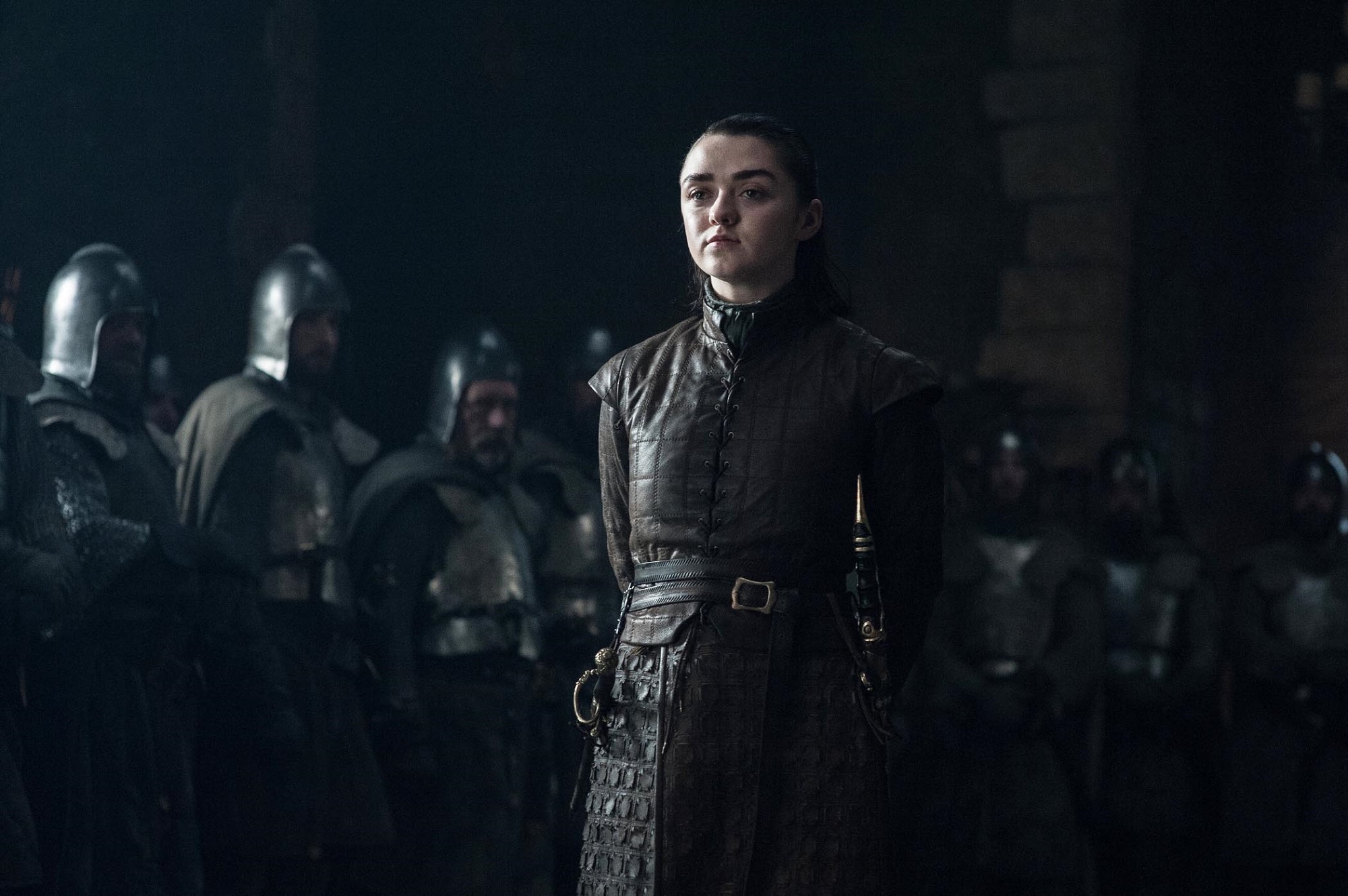
By Randy Holt
One thing that Game of Thrones thrives off of that a lot of other programs or films do not is the ambiguity of its characters from a moral perspective. Villains aren’t always identifiable as such because of their humanizing elements (see: Lannister, Cersei) and the heroes (in as loosely an archetypal definition as possible) commit acts that stretch them to the edge of such morality. There may not be a better representation of such a lack of moral and ethical clarity than the beloved Arya Stark.
It’s such a fine line that’s been drawn for Arya to traverse back and forth. Season 7 saw her pushed to the edge of the “good guy” trope and perhaps taking on a role as an anti-hero or something even more severe. The journey on which she’s been, and the trials that have been featured, have developed her character in a way that makes categorizing her into a specific archetype quite a difficult task.
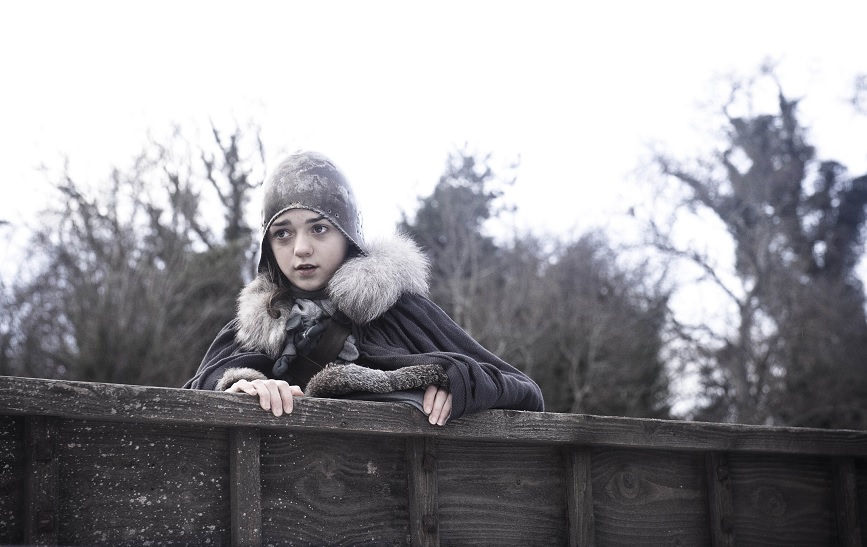 Arya’s character development begins immediately after she arrives on screen in Season 1. Her upstaging of Bran as he attempts target practice, via bow & arrow, at Winterfell reveals two things: her desire to develop into a warrior and a temperament that will allow her to do so. These are obviously essential elements of her character. More than anything, though, she’s been shaped by her experiences and the mentors that she has had.
Arya’s character development begins immediately after she arrives on screen in Season 1. Her upstaging of Bran as he attempts target practice, via bow & arrow, at Winterfell reveals two things: her desire to develop into a warrior and a temperament that will allow her to do so. These are obviously essential elements of her character. More than anything, though, she’s been shaped by her experiences and the mentors that she has had.
Given that she’s always had the same type of attitude and demeanor throughout all seven seasons, it’s easy to forget that she’s gone through some pretty horrific experiences. She witnessed the death of her father. She’s lost friends like Mycah and Lommy to violence. Her opposition to the Waif in Braavos barely left her alive. This has, of course, inspired a thirst for revenge, but at the same time, the fact that she hasn’t become a jaded, murderous wretch, despite possessing the skill set to do so, is somewhat bewildering. She’s gone through some of the trials that we might expect from the archetypal hero, all while maintaining at least some sense of morality. There’s a special weapon, a mentor, a crossing of a threshold, and several other elements scattered throughout her story. But can we really classify her as such? Perhaps the influence of her mentors can shed some light.
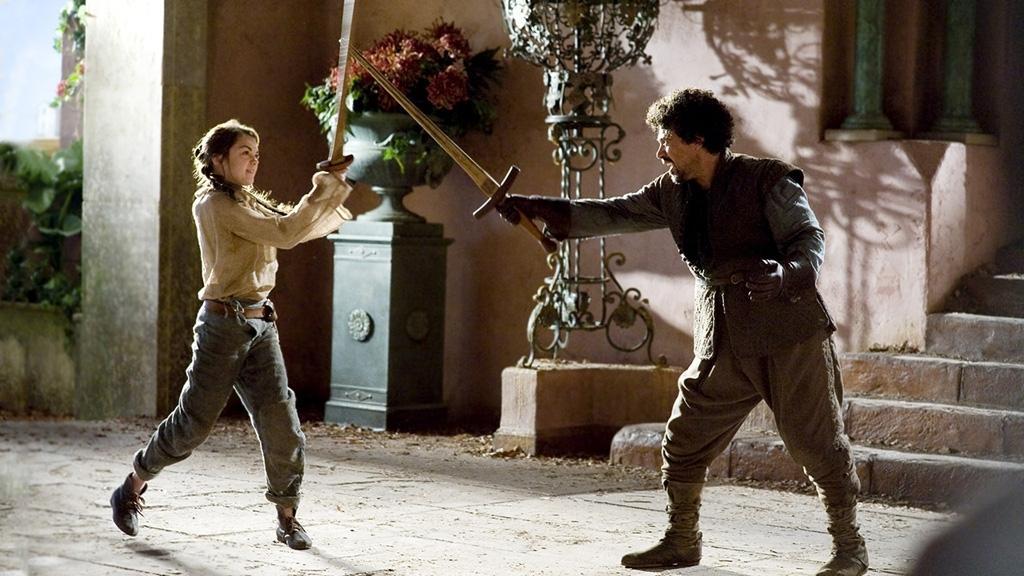
Syrio Forel (archetypal mentor). Sandor Clegane (anti-hero). Jaqen H’ghar (trickster). While none of the three represent the idea of the hero, is it possible that Arya took the best qualities of each in order to become a hero herself? Maybe, but it obviously depends on the traits inherited from the three.
From Syrio, she obviously took a certain level of skill. The perseverance instilled within her from Forel’s mantra “There is only one god, and His name is Death. And there is only one thing we say to Death: ‘not today'” has provided fuel for Arya’s fire throughout the seasons since he was assumed dead at the hands of Meryn Trant. Given her role as a girl/woman within Westeros, Syrio provided a rare opportunity for her to exceed the bounds of what gender roles would allow her to do. He provided her with tools and skill, as well as helping her to establish a proper and stronger mindset, but it’s difficult to identify truly heroic qualities that he instilled upon her, given their short time together.
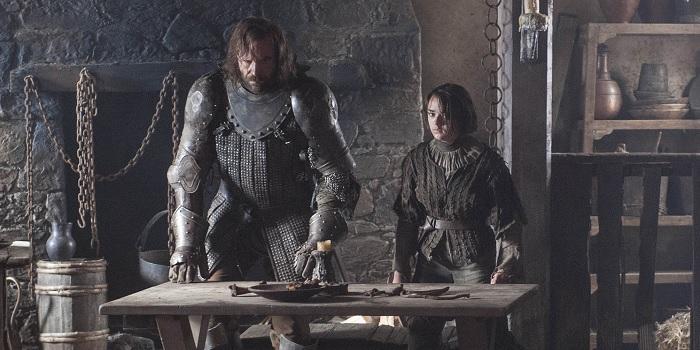
The interactions between Arya and Sandor Clegane have really provided us with some of the more enjoyable content throughout the course of these seven seasons. Despite being an adult figure in her life, though, it’s somewhat difficult to classify him as a mentor, as it’s unclear if he bestows any additional knowledge or skill upon her. If anything, he does help to further establish her character and help us to understand a bit more of what her code is, as she constantly demonstrates a disdain towards him that culminates in her referring to him as “the worst shit in the Seven Kingdoms”. The Hound also opens her eyes to much of the injustice taking place in the world and instills a sense of realism, perhaps cynicism, within her. While these are essential elements in her overall character and could serve as part of her inspiration for venturing to Braavos, it stands to question whether or not there are legitimate qualities which The Hound has influenced within her character.
Similarly, it’d be very difficult to justify the idea that Arya inherited heroic qualities from Jaqen H’ghar, essential as the skill set she adopts from him may be. What Arya takes away from him is obviously the ability to shapeshift and deceive, neither of which would be considered elements of the heroic archetype. There’s an amount of morality involved with the Faceless Men, though, and the principles of becoming No One are quite clear throughout these trials. However, the element of a code doesn’t allow her to illustrate heroic qualities necessarily, but that of a different, albeit related, archetype.
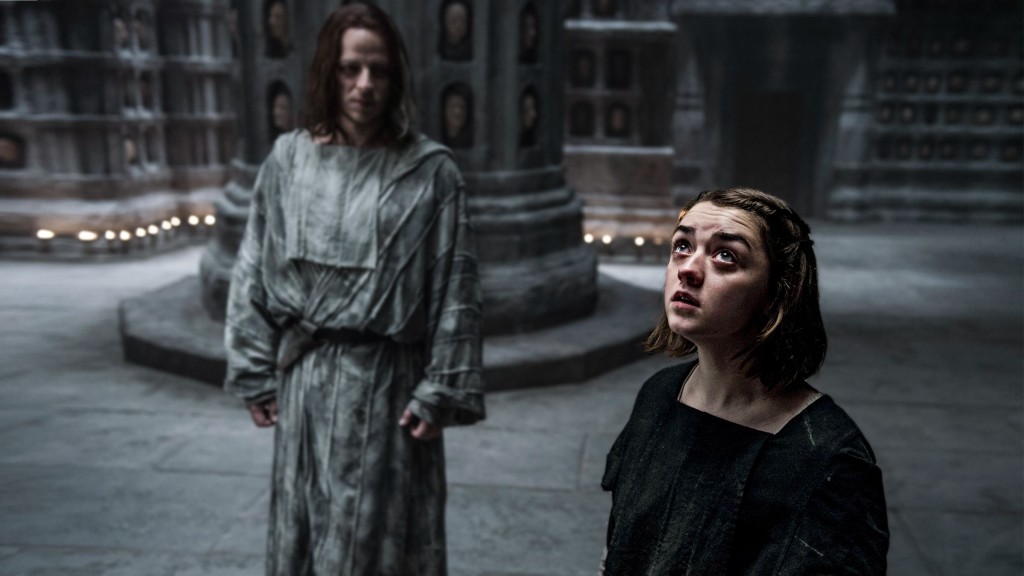
We’re using the term “mentor” loosely here in regard to that trio, but as much as they did influence her in certain ways, it’s probably not in the way that we could characterize her as the archetypal hero. There are elements of it, but ultimately there isn’t enough riding on her storyline to alter the future of Westeros, while she doesn’t demonstrate the kind of moral fiber that a hero tends to demonstrate, or have a lack of clarity surrounding her origins, just to name a couple.
Even after eliminating it as a possibility, though, it’s still a rather murky picture for Arya as an archetype. If anything, what’s been established here is that she’s a blend of multiple archetypes. There are heroic qualities here that lend themselves more to an anti-hero. She does live by her own sort of code, while constantly fighting for survival. From the point that she witnesses her father’s execution in King’s Landing to her arrival in Braavos, this is a character whose survival is the basis for every decision that is made. But that’s also to a point. She lectures The Hound for his brutality, specifically in regard to the farmer and his daughter, despite the necessity for their own survival. There’s an element of humor to her role within the show as well, though it may not be as prominent as it typically is within the anti-hero. But there are other factors and variables within her character that make fitting her into the anti-hero mold, flexible as it may be, quite difficult.
One of those is, quite obviously, the skill set she took away from the House of Black & White. Her abilities, which are not only limited to shapeshifting, could indicate that of the trickster. The trickster possesses the type of skill and intelligence to make them a deceptive figure, while also going against the norms of society. Arya’s departure from Braavos, and subsequent return to Winterfell, could indicate just that. As far as the former is concerned, she outsmarted Littlefinger, a character as deceptive as any within the world of Game of Thrones. The latter is indicated within her interactions with Sansa, as her sister demonstrates apprehension in approaching Arya, specifically in regard to her hit list that she referred to upon her return. The qualities of the trickster seem to embody what Arya has become throughout the last two seasons.

Arya’s level of intelligence and her shapeshifting ability learned from the Faceless Men, along with her inherit quest for survival and some semblance of a moral code would appear to blend her within the trickster and anti-hero archetypes. There could be just a dash of the hero in there as well, as there are elements of The Journey reflected within her own. She goes through a number of trials, reaches an abyss, and ultimately succeeds in her mastery of her old self and the new one. Also, special weapon? Hello, Needle. At the same time, her lack of morality and thirst for revenge undoes a lot of what potentially makes her the hero. Especially given the potential route she was on in almost becoming dehumanized early on in Season 7.
Ultimately, though, there are a number of ways in which Arya’s archetype could be explored and categorized. Many of them do not easily lend themselves to the idea of a hero, but rather a blend of the two others with elements of the hero distributed throughout. The fact that Arya Stark fits into such a number of different classifications is absolutely part of what makes her such an extraordinary character.
Randy Holt is an AP Literature Teacher in Phoenix, AZ whose brain is constantly in peril over whether or not Tyrion Lannister is actually a Targaryen. A long-time die-hard, Randy has only begun to dabble on the writing side of Game of Thrones lore, despite a wealth of writing experience in the internet’s baseball division.
The post Arya Stark: Defying the Hero’s Archetype appeared first on Watchers on the Wall.
Via http://watchersonthewall.com
No comments:
Post a Comment